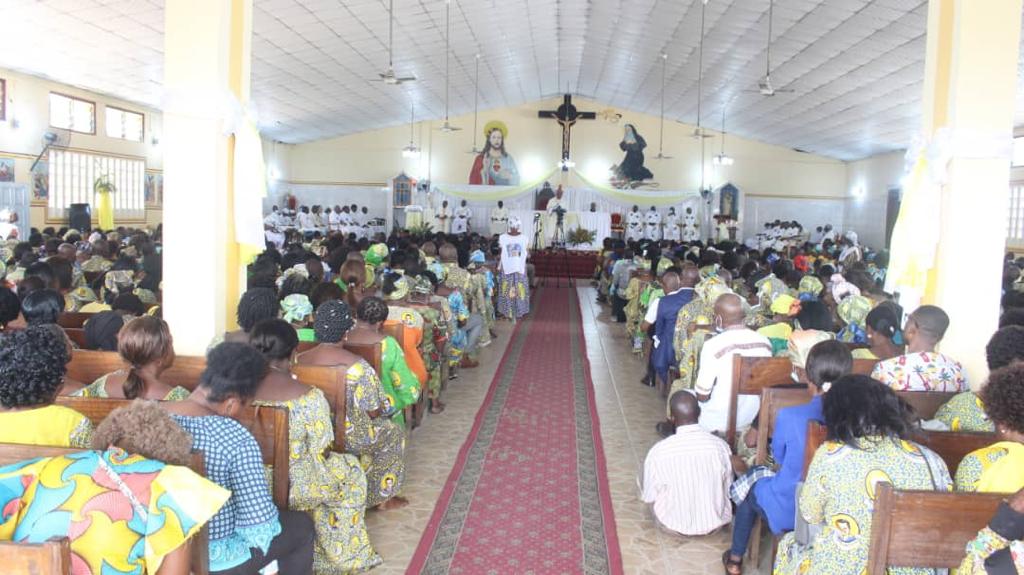Day “the catechist listening to his pastor”, mass to Saint Rita of Kisantu / Prisca Materanya / LCA
Interview
Author of numerous works, Father Alain Clément Amiézi, will be ordained on September 24 as bishop of Odiénné, in the north of the Ivory Coast.
To have a “Adult Church” in Africa, “ we must reinvent the participation of lay people”, he analyzes with La Croix Africa.
La Croix Africa: How do you view the state of faith in Africa?
Father Alain Amiezi: The majority of our Churches in Africa have already celebrated the centenary of evangelization. Logically, we should speak of an adult Church. But at the qualitative level, we realize that the work to be done remains immense. Today, in several African countries, after the great festivities that accompany the reception of baptism, the percentage of those who continue and complete their Christian initiation through confirmation is very low. The number of faithful truly engaged in social or political life according to the virtues of the Gospel is tiny. We baptize people without making them Christians, we give the sacraments without evangelizing.
Responsibility for this situation is shared. From my point of view, it is linked, on the one hand, to the fact that certain catechumens ask for baptism for the wrong reasons and, on the other hand, to the quality of the formation received.
What should be the impact of baptism in the lives of African Christians?
Father Alain Amiezi: There is essentially the prophetic commitment which has three dimensions. First, a Christian coherence that invites us to break with the dichotomy that often exists between the life of faith and everyday life, at work, at school or in the family. The Christian life is not a coat that one wears at the entrance of the parish to remove it at the exit.
The second dimension is courageous witness. Our African countries need Christians capable of getting out of the logic of “everyone does it this way”, and of living their faith through their commitment at the social, economic and political level.
To read: Bishop Amiézi: “I am going to Odienné to be with everyone”
The third dimension is to have a spirituality that allows Christians to courageously face existential problems. There are forms of spirituality which paralyze our Christians, which infantilize them through predictions, words of knowledge, to the point where their vital forces are annihilated.
Who is responsible for this prophetic commitment for an adult Church? To clerics or laity?
Father Alain Amiezi: Together, clerics and laity must be able to work for the good of the Church. Clerics must fully play their role of trainer, companion and guide. They must, moreover, collaborate fully with the laity so that there is what is called in the Church a common responsibility.
Since the Second Vatican Council, we are no longer in the time when the priest did everything and the layman was a passive observer. From a historical perspective, we realize that since the arrival of the missionaries, the laity have actively participated in evangelization, particularly through catechists. Today, it is necessary to reinvent the participation of the laity in the life of the Church, taking into account new realities.
In this regard, we must consider the phenomenon of new communities and fraternities, which are not without contributions, but can also pose problems. It happens indeed that they plunge Christians into obscurantism and that they infantilize them. It is imperative for pastors to check the “ecclesiality” criteria of these prayer groups.
Guy Aimé Eblotié
“In Africa, people are baptized without making them Christians”

